Neither bad nor good, just pointless and past its sell-by date

This isn't a "bad" book per se, but it's curiously pointless. While Blank sets out to limn the history of heterosexuality as a concept, what she really ends up doing at great length and to little new effect, is to write about the legal and social concepts of marriage (companionate and otherwise) and the cultural history of dating. None of this is fresh, none of this has not been done dozens of times before decades before, most more thoroughly and from a more deeply informed historical and/or philosophical perspective. None of this illuminates our current understanding of what's "heterosexual" and what's "homosexual". In fact, beyond the brief personal revelations that open and close the volume, there's virtually nothing here I haven't read many, many times over.
I guess I just can't imagine who's the audience for this book. Anyone seriously interested in the subject of sexuality, sexual/gender identity, and the history of how society and individuals assign labels is not going to find anything fresh, interesting, or particularly useful here. And those who aren't especially interested or knowledgeable are probably not going to read or seek out this book. Sooo?
Not quite as "destructive" as I'd hoped

I really, really wanted to love this, but overall this special edition of Lightspeed is just OK.
The best stories here are reprints: Tiptree's haunting "Love is the Plan, the Plan is Death", Eleanor Arnason's charming take on Bashō, "Knapsack Poems" (although this strikes me more as fantasy than science fiction), and Maureen McHugh's novella "The Cost to Be Wise", which would eventually be expanded into her fine novel, 'Mission Child'.
None of the new work is anywhere near as strong but the opening story by Seanan McGuire, "Each to Each" is compelling (at least, after a few terribly clunky initial paragraphs) and I also found N.K Jemisin's "Walking Awake" a thoughtful piece. "Dim Sun" (Maria Dahvana Headley) is great fun, especially if you're a foodie like I am, "The Sisterhood of Ick" by Charlie Jane Anders felt a little manipulative but was still a pretty good read, and I enjoyed Rhonda Eikamp's "The Case of the Passionless Bees", an sfnal take on Sherlock Holmes, despite the fact that it contained no real mystery at all. But the other new pieces were less engaging and many felt rather tired and predictable, a judgment I found taking hold more deeply as I moved into the flash fiction and the many essays. Only Pat Murphy's passionate, articulate histories of the Tiptree award and Kameron Hurley's justly praised 'We Have Always Fought: Challenging the Women, Cattle, and Slaves Narrative' had much to offer beyond bland exhortations to keep on keeping on...or something.
Again, none of this is bad (well...OK, a couple of pieces here are bad but I'm being nice and really they're just a tiny blip in a larger whole), but so much of it feels tired and over-done and kind of stale. Not very destructive or revolutionary. There are just so many damn good, really fresh and exciting female SF writers out there that I can't help but wonder why they're not present in this anthology. I know these things take time and commissioning work is a crap-shoot because the writers one desperately wants aren't always interested or available, but where are the writers like Catherynne Valente, Aliette de Bodard, Yoon Ha Lee, L. Timmel Duchamp, Jennifer Marie Brisset, Carmen Maria Machado, Gwyneth Jones, Vandana Singh, Andrea Hairston and others? These are women who are not just "destroying" science fiction as we know it but rebuilding it in new and beautiful, previously unknown forms. I wish this volume had focused more on writers like these and less on the same old stuff written with different third-person pronouns.
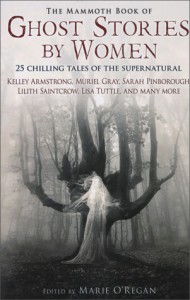
This is a solid collection of ghost stories by American and British women writing in English. Featuring a mix of old and new, thematically there's something for almost everyone, with an especially strong selection of haunted house type tales. I would have liked to see more diversity in setting and some stories by Anglophone authors from outside the US and UK, as well as some translated works if this was really meant to an anthology of ghost stories "by women" rather than women writing in English (Anne-Sylvie Salzman's work would have fit in very well-at least as well as Caitlin R. Kiernan's, which is featured here). A few clunkers (including the opening story, the only one I DNFd) mar the book's pacing and weaken the whole, but overall this is a nice addition to the Mammoth Books series and I'd love to see a (slightly more inclusive) second edition of 'Ghost Stories by Women'.
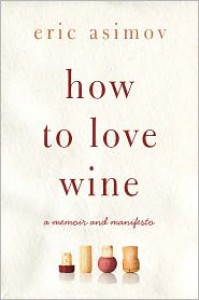 Review as tasting note
Review as tasting noteVirtually colourless. Bitter aromas reminiscent of sour grapes and dirty laundry. Thin, flat and somewhat oxidized with a short, dilute finish. Drink by: yesterday.
(More seriously: there's just nothing new, interesting or meaningful here.Both Asimov's complaints and his enthusiasms are very old news in the wine world and I doubt there's a previously published book out there that hasn't covered them already, likely with more flair and greater thoroughness. I generally enjoy Asimov's work at the New York Times but this book is a brief magazine article padded into a very thin, exceptionally dull vanity volume. There's little reason to read this much less to buy it. Spend the cash on a wine you like instead.)
 I like science fiction. I like romance (particularly the trad Regency romances upon which this is so clearly modeled). I like Bujold's Vorkosigan series. So this should have been a slam-dunk, but, oh, what a disappointment this turned out to be!
I like science fiction. I like romance (particularly the trad Regency romances upon which this is so clearly modeled). I like Bujold's Vorkosigan series. So this should have been a slam-dunk, but, oh, what a disappointment this turned out to be! This book is awkward, charmless, silly, and, well, just aggressively mediocre. So mediocre and so lazy that I almost wonder if Bujold isn't hoping to abandon this series and is using this sub-par book as a way to get fans to detach from it. From the first awkward paragraphs to the last, this is a thin and tiresome book. Nobody here is worth caring about, no one has a single interesting thing to say, and the world depicted is about as nuanced and sophisticated as a primary school cardboard and tempera-paint stage set seen up close (far less attractive, too!). Info dumps are many, real development is scarce, and the plot, such as it is, is hackneyed beyond belief. Even Ivan Vorpatril (never the sharpest or shiniest piece of cutlery in the tray) deserves better than this.
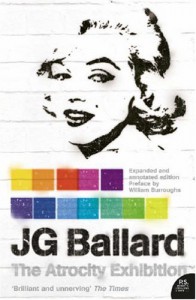 This book proves once again (as if I needed any further proof this far into our tiresomely exhibitionist century) that other people's sexual fetishes* make for extraordinarily dull reading, even when they are gussied up with exquisitely beautiful prose and oodles of (once upon a time) celebrity names.
This book proves once again (as if I needed any further proof this far into our tiresomely exhibitionist century) that other people's sexual fetishes* make for extraordinarily dull reading, even when they are gussied up with exquisitely beautiful prose and oodles of (once upon a time) celebrity names.This isn't "experimental" literature-it's a dragging, masturbatory ejaculation of pointless prose aimed at a fawning, self-congratulory readership ashamed of its own lusts (for gossip, fame, sex, gore, retribution).
For the real experimental, take-no-prisoners, literary thing roughly contemporaneous with Ballard check out anything by Ann Quin, Christine Brooke-Rose, or Henry Green. No celebrity, little sex, an absence of anatomy lessons (if I never see another reference to buccal orifices and children's perineums, I will die a happy woman) and mayhem kept to a minimum, but some of the best blow your head off writing available in English.
*Except for Bataille. Everybody needs to experience the sheer, world-twisting weirdness of Bataille, if only to say they read it and survived with some sense of sexual instinct intact.
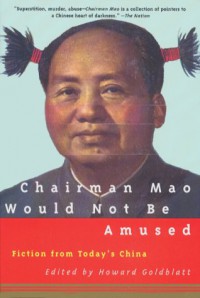 I have to admit that I'm not quite sure why this anthology has such low average ratings here and on Amazon. While this is a somewhat uneven collection and has its share of duds, there is much here to admire and enjoy. Embracing a wide variety of themes, from ghost stories to love stories, absurdist fantasies to old-fashioned tales of hard scrabble village life, this volume showcases both writers well known in the West and those who've rarely or never been translated before. My favourite stories included Chen Ran's poignant, beautifully structured "Sunshine Between the Lips", Chen Cun's atmospheric, disquieting "Footsteps on the Roof", Bi Feiyu's wry "Ancestor", Wang Meng's comical and slightly absurd "A String of Choices" and Yu Hua's brilliant "The Past and the Punishments". Also well worth reading: "The Brothers Shu" (Su Tong), "First Person" (Shi Tiensheng),"Grass on the Rooftop" (Li Xiao) "The Sleeping Lion" (Kong Jiesheng) and "Fritter Hollow Chronicles" (Wang Xiangfu).
I have to admit that I'm not quite sure why this anthology has such low average ratings here and on Amazon. While this is a somewhat uneven collection and has its share of duds, there is much here to admire and enjoy. Embracing a wide variety of themes, from ghost stories to love stories, absurdist fantasies to old-fashioned tales of hard scrabble village life, this volume showcases both writers well known in the West and those who've rarely or never been translated before. My favourite stories included Chen Ran's poignant, beautifully structured "Sunshine Between the Lips", Chen Cun's atmospheric, disquieting "Footsteps on the Roof", Bi Feiyu's wry "Ancestor", Wang Meng's comical and slightly absurd "A String of Choices" and Yu Hua's brilliant "The Past and the Punishments". Also well worth reading: "The Brothers Shu" (Su Tong), "First Person" (Shi Tiensheng),"Grass on the Rooftop" (Li Xiao) "The Sleeping Lion" (Kong Jiesheng) and "Fritter Hollow Chronicles" (Wang Xiangfu).
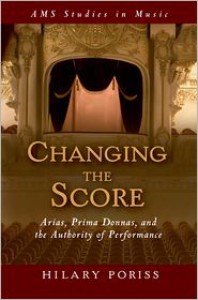 While somewhat dry and repetitive in the early chapters (an inevitability given the need to establish names, dates and other minutiae of historical performance), this is overall a rather engaging and interesting look at the phenomenon of the insertion aria, the divas and divos who drove the practice, and the social and musical/conductorial/technological changes that ultimately led singers to cease adding or substituting extraneous arias to operatic roles. The chapter dedicated to Caroline Ungher is very well done and thoroughly researched and I also greatly enjoyed the later chapter detailing the varied history (pre- and post- Adelina Patti) of the insertion aria in Rosina's lesson scene in 'Il barbiere di Siviglia'. Poriss takes her survey into the 20th century with a brief account of the insertion aria in modern-day performances of 'Il barbiere' and the controversy surrounding Cecilia Bartoli's substitution of two non-standard Mozart arias into the Metropolitan Opera's 1998 production of 'Le nozze di Figaro'. She ends with a fascinating look at a virtually unknown short story, a 19th century object narrative (first published in 'Fraser's Magazine' in 1849) told from the point of view of what is essentially an insertion aria.
While somewhat dry and repetitive in the early chapters (an inevitability given the need to establish names, dates and other minutiae of historical performance), this is overall a rather engaging and interesting look at the phenomenon of the insertion aria, the divas and divos who drove the practice, and the social and musical/conductorial/technological changes that ultimately led singers to cease adding or substituting extraneous arias to operatic roles. The chapter dedicated to Caroline Ungher is very well done and thoroughly researched and I also greatly enjoyed the later chapter detailing the varied history (pre- and post- Adelina Patti) of the insertion aria in Rosina's lesson scene in 'Il barbiere di Siviglia'. Poriss takes her survey into the 20th century with a brief account of the insertion aria in modern-day performances of 'Il barbiere' and the controversy surrounding Cecilia Bartoli's substitution of two non-standard Mozart arias into the Metropolitan Opera's 1998 production of 'Le nozze di Figaro'. She ends with a fascinating look at a virtually unknown short story, a 19th century object narrative (first published in 'Fraser's Magazine' in 1849) told from the point of view of what is essentially an insertion aria.Highly recommended for classical singers, aficionados of bel canto opera, and anyone interested in 19th century musical performance practice.
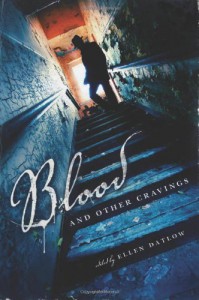 A rather disappointing collection with only a single superb new story (Lisa Tuttle's understated but stunning and genuinely creepy "Shelf Life") and a handful of good to very good ones ("Needles" by Elizabeth Bear, "The Mulberry Boys" by Margo Lanagan, "Toujours" by Kathe Koja, "Keeping Corky" by Melanie Tem and "Sweet Sorrow" by Barbara Roden). Two reprints (Reggie Oliver's "Baskerville's Midgets" and Carol Emshwiller's "Mrs. Jones") are both fine tales but surely very familiar to fans of the authors. The other new stories range from mediocre to downright dreadful. Given the mixed content, I'm glad this volume was a library loan rather than a purchase.
A rather disappointing collection with only a single superb new story (Lisa Tuttle's understated but stunning and genuinely creepy "Shelf Life") and a handful of good to very good ones ("Needles" by Elizabeth Bear, "The Mulberry Boys" by Margo Lanagan, "Toujours" by Kathe Koja, "Keeping Corky" by Melanie Tem and "Sweet Sorrow" by Barbara Roden). Two reprints (Reggie Oliver's "Baskerville's Midgets" and Carol Emshwiller's "Mrs. Jones") are both fine tales but surely very familiar to fans of the authors. The other new stories range from mediocre to downright dreadful. Given the mixed content, I'm glad this volume was a library loan rather than a purchase.
 A moderately entertaining but rather pedestrian, highly predictable ghost story.
A moderately entertaining but rather pedestrian, highly predictable ghost story. Hill's only an adequate writer and not much of a prose stylist so her tendency to follow her protagonist's movements in excruciating detail and at excessive length is tiring. There's really not enough of a plot here, not enough complexity or emotional depth, to justify this tale's word count. Characters are so flat and so unreal that their every emotion seems melodramatic and engineered in service of the plot, almost the stock actions of marionettes, and the setting feels uncertain in time and generically "spooky" in place. What might have worked nicely as a short story or brief novella ultimately seems over-extended and rather silly in novel form. I'd give this 2 1/2 stars if I could. Overall, this was a disappointment.
(For a really horrifying, genuinely spooky ghost story also set in a small English village, I highly recommend Bernard Taylor's Sweetheart, Sweetheart Much better book. Much better writer.)
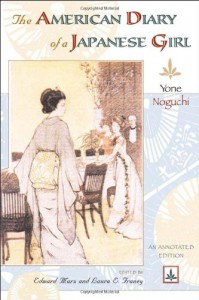 While Noguchi's little novel is hardly great art, I found this, the first novel written by a Japanese individual living in the United States, surprisingly interesting as both an important historical document and a sprightly chronicle of a most-opinionated and vivacious young woman touring turn-of-the-century San Francisco, Los Angeles, Chicago and New York. The annotations and editorial content are immensely helpful and informative and added a great deal to my enjoyment.
While Noguchi's little novel is hardly great art, I found this, the first novel written by a Japanese individual living in the United States, surprisingly interesting as both an important historical document and a sprightly chronicle of a most-opinionated and vivacious young woman touring turn-of-the-century San Francisco, Los Angeles, Chicago and New York. The annotations and editorial content are immensely helpful and informative and added a great deal to my enjoyment.
 The final and by far the most uneven and disappointing volume in the 'Bending the Landscape' series. Few of the stories featured here rise above mediocrity and a couple are downright dreadful-so amateurish and so poorly structured that I'd hardly expect them to pass a college creative writing class much less be selected for publication in a major anthology. Only L. Timml Duchamp's evocative 'Explanations Are Clear', Simon Sheppard's dry and witty jeux d'esprit 'What Are You Afraid Of?' and Holly Wade Matter's wrenching, beautifully imagined 'Memorabilia' really stand out. A rather sad end for an intriguing and important series.
The final and by far the most uneven and disappointing volume in the 'Bending the Landscape' series. Few of the stories featured here rise above mediocrity and a couple are downright dreadful-so amateurish and so poorly structured that I'd hardly expect them to pass a college creative writing class much less be selected for publication in a major anthology. Only L. Timml Duchamp's evocative 'Explanations Are Clear', Simon Sheppard's dry and witty jeux d'esprit 'What Are You Afraid Of?' and Holly Wade Matter's wrenching, beautifully imagined 'Memorabilia' really stand out. A rather sad end for an intriguing and important series.
 An interesting if ultimately rather disappointing collection. While there are a few excellent stories (I wholeheartedly recommend the selections by Johanna Sinisalo, Lucian Merişca, Sergei Lukayenko and Andreas Eschenbach) much of what is featured here is tired and lackluster and some of it is much closer in feel and form to literary fantasy than science fiction as currently understood in virtually any nation (José Antonio Cotrina's 'Between the Lines, a Borgesian tale, is a clear example of this-a decent and entertaining story but in no way science fiction). Both the opening and closing entries (by Jean-Claude Dunyach and Bernhard Ribbeck, respectively) are rather weak and the introduction and introductory paragraphs before each story are just plain awful. I bought this in hardcover when it was first released-given the opportunity to go back, I wouldn't do so again.
An interesting if ultimately rather disappointing collection. While there are a few excellent stories (I wholeheartedly recommend the selections by Johanna Sinisalo, Lucian Merişca, Sergei Lukayenko and Andreas Eschenbach) much of what is featured here is tired and lackluster and some of it is much closer in feel and form to literary fantasy than science fiction as currently understood in virtually any nation (José Antonio Cotrina's 'Between the Lines, a Borgesian tale, is a clear example of this-a decent and entertaining story but in no way science fiction). Both the opening and closing entries (by Jean-Claude Dunyach and Bernhard Ribbeck, respectively) are rather weak and the introduction and introductory paragraphs before each story are just plain awful. I bought this in hardcover when it was first released-given the opportunity to go back, I wouldn't do so again.
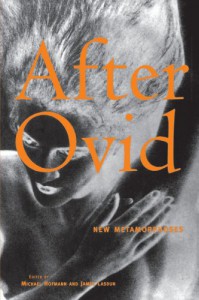 An uneven and rather disappointing collection. While there are a few stunning poems (I particularly liked those by Alice Fulton and Eavan Boland) the majority are average (even Ted Hughes is not at his best here) and frequently seem laboured or dutiful, as if the myth chosen did not truly inspire the poet but was merely a commission to complete on time. An excessive overlap in theme among the poems doesn't help (so much to choose from in the Metamorphoses, and yet so little done with it here); the book becomes a monotonous read well before the halfway point and I was genuinely relieved to be moving onto something else when I turned the last page-a feeling I've certainly never had when reading Ovid himself!
An uneven and rather disappointing collection. While there are a few stunning poems (I particularly liked those by Alice Fulton and Eavan Boland) the majority are average (even Ted Hughes is not at his best here) and frequently seem laboured or dutiful, as if the myth chosen did not truly inspire the poet but was merely a commission to complete on time. An excessive overlap in theme among the poems doesn't help (so much to choose from in the Metamorphoses, and yet so little done with it here); the book becomes a monotonous read well before the halfway point and I was genuinely relieved to be moving onto something else when I turned the last page-a feeling I've certainly never had when reading Ovid himself!
 This isn't quite like any other Regency romance you're ever likely to read. Written in the first person by a thoroughly unreliable but utterly charming narrator (the titular "hoyden"), this witty, fast-paced novel takes the standard Napoleon at the borders/ports espionage tale and turns it on its ear.
This isn't quite like any other Regency romance you're ever likely to read. Written in the first person by a thoroughly unreliable but utterly charming narrator (the titular "hoyden"), this witty, fast-paced novel takes the standard Napoleon at the borders/ports espionage tale and turns it on its ear. There's no real point in going too deeply into the story since it's the characters (a well-travelled spinster, her male secretary and a conspicuously convenient nobleman) and the way that their very human reactions make an unholy mess of the plot, that gives this novel its charm. In its tweaking of well-worn and much beloved tropes this reminds me just a tiny bit of Stoppard's 'Rosencrantz and Guildenstern are Dead'. A must read for any fan of Heyer or Chesney.






